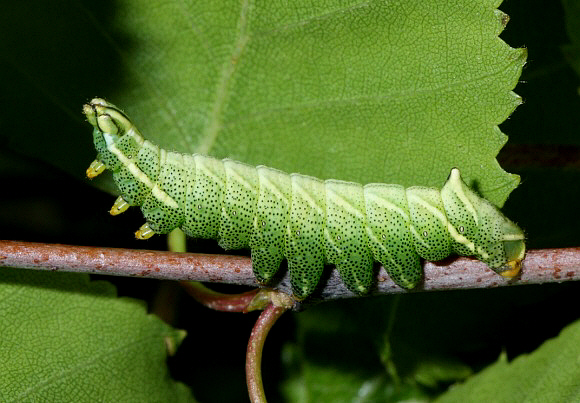
Introduction
The family Endromidae comprises of only 22 species. The majority are found in temperate regions of the Palaearctic region, from northern Europe to China and Korea. There are 8 genera – Andraca, Endromis, Falcogona, Mirina, Mustilia, Mustilizans, Oberthueria, Prismosticta and Pseudandraca. The adult moths vary in wing shape and pattern, but tend to be brownish in colour with white and grey or black markings. They have a stout thorax, and short antennae which are pectinate in males.
The genus Endromis comprises of a single species versicolora which is found throughout Europe, and across temperate Asia to Siberia and China. In Britain it is a very scarce insect, confined to the central and eastern Highlands of Scotland.
Habitats
This species is found in birch forests, in areas of extensive young growth, at altitudes between sea level and about 500m.
Lifecycle
The eggs are laid in batches on twigs of birch Betula. The young larvae are gregarious but become solitary during the later instars. They resemble Sphingidae larvae, but have a shorter tail horn and forward-slanting diagonal stripes, as opposed to the backward-slanting stripes of hawkmoths. When at rest they adopt the characteristic head-in-the-air posture as depicted above. The pupa is formed within a coarse brown silk cocoon, among leaf litter on the ground.
Adult
Males fly on sunny or warm overcast days in April and early May. Females hang suspended from sprays of birch during the daytime, and disseminate pheromones which can attract males from 1-2kms away. The male is considerably smaller than the female, and during copulation clings to her abdomen. The females only fly at night.
